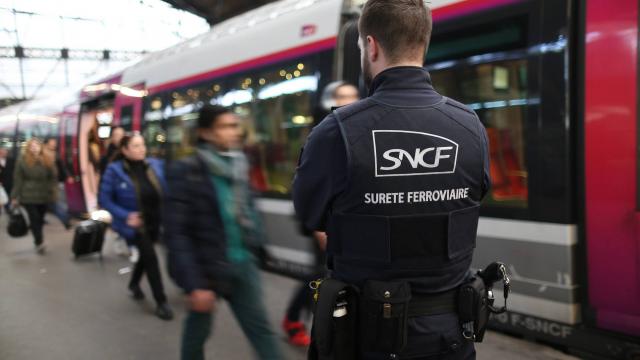Terrorist threat: Soon Armed SNCF agents in trains

Agents of the RATP and SNCF will work in civilian clothes and be armed from Saturday 1st October, under a decree published Friday in the Official Journal, which will be implemented in the coming months. These “patrols” will be “empowered and trained to shoot.”
The text provides for “the extension of the exemption from wearing a uniform” and the “possibility of keeping the exemption in possession of a weapon” for agents of the SNCF and RATP in house security service.
At RATP, the employees in question will be operational in the coming weeks. They must first be recruited from among the most experienced agents of the Protection Unit and network security (RSPG) and trained in this specific mode of intervention.
At the SNCF, it indicates that “there will be a delay of the missions of this nature, but probably by the end of the year. You need a license, which we do not have at present, and also train officers need to be specifically trained, which has begun but has not yet been completed. “
Pat-downs and searches
The decree states that the security officers will also be allowed to carry out “security pat-downs” in the case of “special circumstances related to the existence of serious threats to public order, particularly at the entrance stations or trains “ . These “patrol” will be“empowered and trained to shoot” .
Already since April, these personnel are allowed to make “visual inspections” and searching the luggage. RATP security agents conduct about 25 checks of this type per day.
The decree published on Friday follows the law of 22 March 2016, called “Loi Savary”, which aims to strengthen “the prevention and the fight against incivility, against attacks on public security and against terrorism in public transport of travelers “ .
Training required
Officers armed and authorized to work in civilian clothes will be trained, justify an experience of at least 5 years in the SNCF and RATP security service and have been approved in advance by the Paris Prefect or department which they will work in, specified in the order.
These officers will also carry “a distinctive sign of belonging to the internal security service,” and after each of their mission in plain clothes, there will be a report.
As for security pat-downs, they will be carried out by authorized and approved agents, said the decree.
Enjoyed this? Get the week’s top France stories
One email every Sunday. Unsubscribe anytime.


